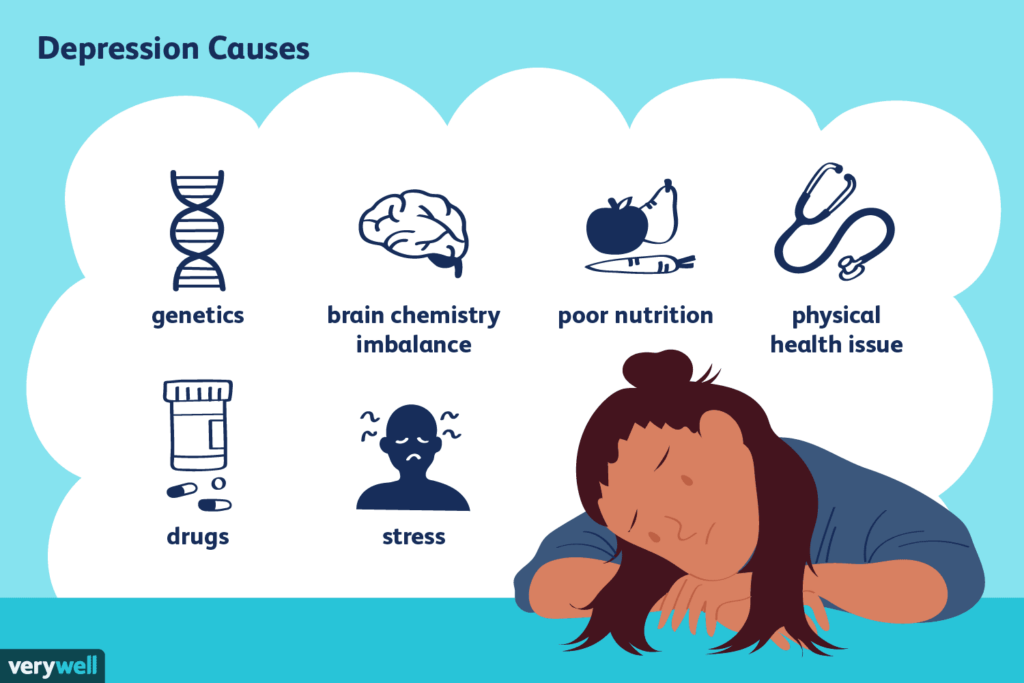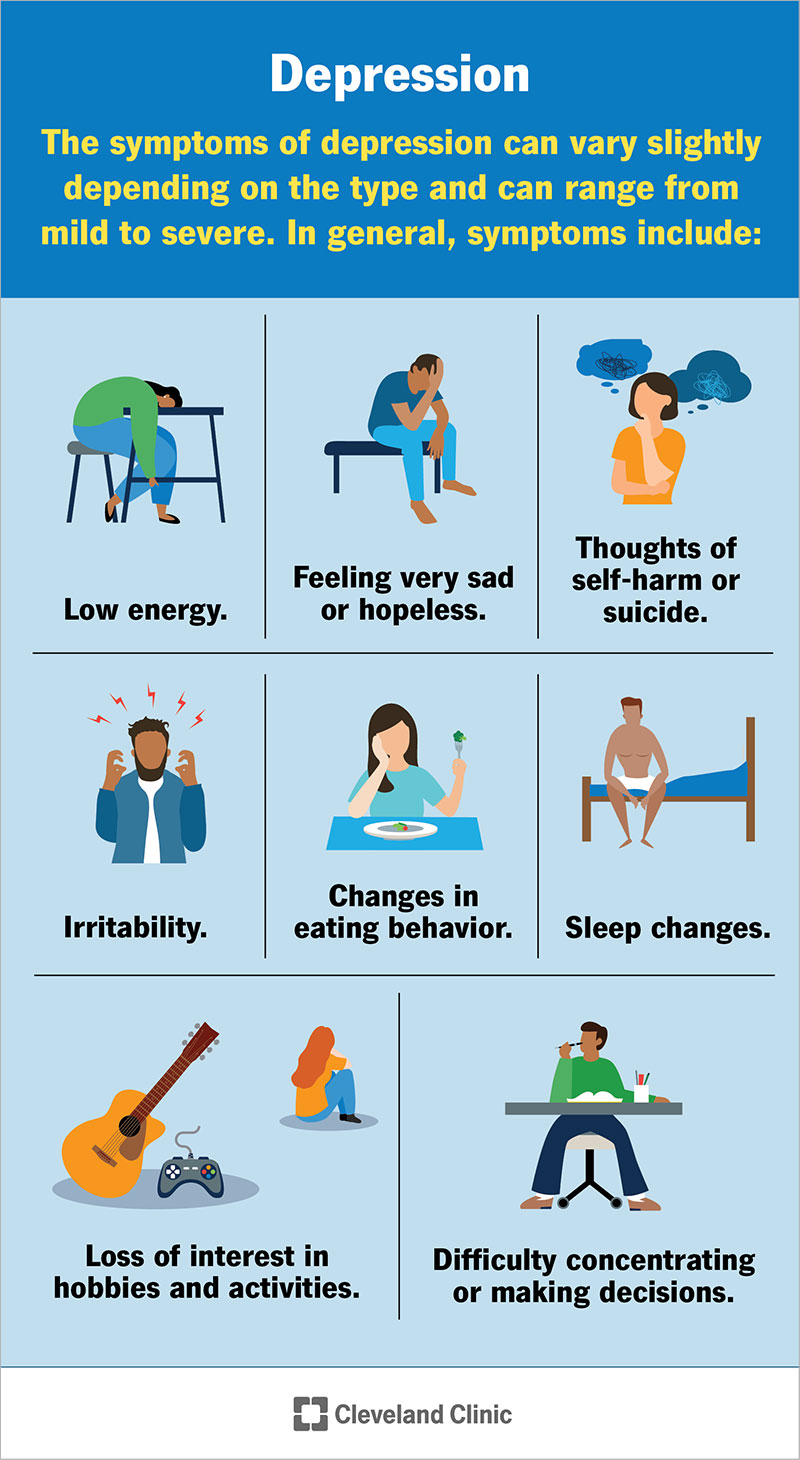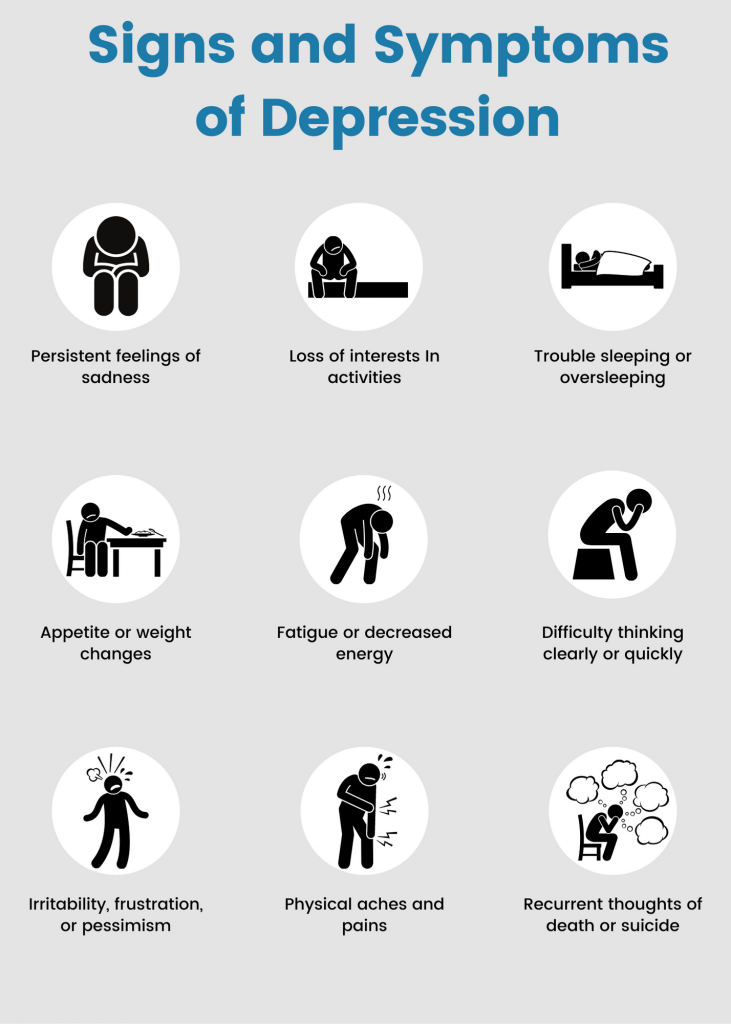You’re not alone in navigating through the ups and downs of life, as we all experience moments of sadness and stress. However, for some, these feelings can become overwhelming, affecting their ability to function and enjoy life. In this article, we’ll explore the complex world of depression, shedding light on its causes, symptoms, and available treatment options. By increasing our understanding of this condition, we can gain insight into how to support those who may be suffering and ultimately work towards a healthier, happier tomorrow.
Understanding Depression: Causes, Symptoms, and Treatment
Depression is a complex and widespread mental health disorder that affects millions of people worldwide. It is important to have a comprehensive understanding of depression to recognize the causes, identify the symptoms, and explore the various treatment options available. In this article, we will delve into the depths of depression, providing insights into its causes, symptoms, types, diagnosis, treatment options, medications, psychotherapy, alternative therapies, lifestyle changes, and the importance of support systems for individuals dealing with depression.
Causes of Depression
Depression can be caused by a combination of genetic, biological, environmental, and psychological factors. Although the exact cause of depression remains unknown, research suggests that a family history of depression increases the risk of developing the disorder. Additionally, chemical imbalances in the brain, particularly in neurotransmitters such as serotonin and norepinephrine, may contribute to the onset of depression. Life events such as trauma, loss, stress, or major changes can also trigger and exacerbate depression. Moreover, certain medical conditions and medications may be associated with the development of depression.
Symptoms of Depression
Recognizing the symptoms of depression is crucial in order to seek timely help and support. Common symptoms include persistent sadness, feelings of hopelessness, loss of interest or pleasure in activities once enjoyed, changes in appetite or weight, difficulty sleeping or excessive sleeping, lack of energy, fatigue, feelings of worthlessness or guilt, difficulty concentrating or making decisions, and recurrent thoughts of death or suicide. It is important to note that these symptoms may vary from person to person, and they can significantly interfere with an individual’s daily functioning and quality of life.
Types of Depression
Depression comes in various forms, each with its own distinct characteristics. Major depressive disorder is the most common type and is characterized by a persistent low mood that lasts for at least two weeks. Persistent depressive disorder, on the other hand, involves a chronic and milder form of depression lasting for two years or more. Other types of depression include postpartum depression, seasonal affective disorder, bipolar disorder (which involves both depressive and manic episodes), and psychotic depression.
Diagnosis of Depression
Obtaining a proper diagnosis of depression is essential for effective treatment. If you suspect that you or a loved one may be experiencing depression, it is important to consult with a healthcare professional. A qualified mental health provider will typically conduct a thorough assessment, which may include a comprehensive psychiatric evaluation, a review of symptoms and medical history, and consideration of any contributing factors. Properly diagnosing depression involves ruling out other medical conditions that may mimic depressive symptoms.

Treatment Options for Depression
Fortunately, depression is a highly treatable condition, and various treatment options are available to help individuals recover and regain control of their lives. The most effective approach to treating depression often involves a combination of therapies tailored to the individual’s needs. These treatment options may include medication, psychotherapy, alternative therapies, lifestyle changes, and the importance of support systems.
Medication for Depression
Medication is often prescribed to individuals with depression, particularly for moderate to severe cases or when other treatment options have not provided sufficient relief. Antidepressant medications, such as selective serotonin reuptake inhibitors (SSRIs), serotonin-norepinephrine reuptake inhibitors (SNRIs), and tricyclic antidepressants (TCAs), can help restore the balance of neurotransmitters in the brain and alleviate depressive symptoms. It is important to work closely with a healthcare provider to find the most suitable medication, as response to medication varies from person to person.

Psychotherapy for Depression
Psychotherapy, also known as talk therapy, is a fundamental treatment approach for depression. This form of therapy involves working with a trained mental health professional to identify the underlying causes of depression, explore negative thought patterns, develop coping strategies, and make positive changes in behavior. Some commonly used psychotherapy approaches for depression include cognitive-behavioral therapy (CBT), interpersonal therapy (IPT), and psychodynamic therapy. Psychotherapy provides individuals with a safe and confidential space to express their emotions, gain insight, and learn valuable skills to manage depression.
Alternative Therapies for Depression
In addition to traditional treatment approaches, some individuals find alternative therapies to be helpful in managing their depression. These therapies may include acupuncture, herbal supplements, yoga, mindfulness meditation, and exercise. While the effectiveness of alternative therapies may vary from person to person, some individuals report positive results and find them to complement their overall treatment plan. It is important to consult with a healthcare professional before trying alternative therapies to ensure their safety and appropriateness for individual needs.

Lifestyle Changes for Depression
Adopting healthy lifestyle changes can significantly contribute to managing and reducing the symptoms of depression. Regular exercise, a balanced and nutritious diet, adequate sleep, and avoiding alcohol and substance abuse can have a positive impact on one’s mental well-being. Building a routine, engaging in social activities, setting achievable goals, and managing stress effectively are also important factors in promoting mental health and recovery from depression.
Support Systems for Depression
Developing a strong support system is crucial in the journey of managing and overcoming depression. Friends, family, and support groups can provide immense comfort, understanding, and encouragement. It is essential to communicate openly with loved ones, seek their support, and educate them about depression to foster an environment of empathy and compassion. Additionally, joining support groups or seeking professional help through counseling can provide individuals with a safe space to share their experiences, gain insights, and receive guidance from others who have gone through similar struggles.
In conclusion, depression is a complex mental health disorder with various causes, symptoms, and treatment options. Understanding the underlying factors contributing to depression, recognizing the symptoms, and seeking timely help are crucial steps in managing this condition. With proper diagnosis, personalized treatment approaches, and strong support systems, individuals can embark on a journey towards recovery, resilience, and improved overall mental well-being. Remember, you are not alone, and there is hope for a brighter future.

